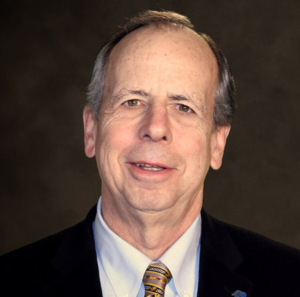Gordon Smith
( politician, diplomat) | ||||||||||
|---|---|---|---|---|---|---|---|---|---|---|
 | ||||||||||
| Born | July 19, 1941 | |||||||||
| Nationality | Canadian | |||||||||
| Alma mater | • Lower Canada College • McGill University • Massachusetts Institute of Technology | |||||||||
| Member of | Trilateral Commission | |||||||||
| Interests | ||||||||||
Attended Bilderberg 1988 as Canadian Permanent Representative to NATO.
| ||||||||||
Gordon Scott Smith is a former Canadian deputy minister of foreign affairs who attended the Bilderberg 1988 as Canadian Permanent Representative to NATO. He later became Ambassador to the EU.
After his diplomatic career, he became director of the Center for Global Studies at the University of Victoria in British Columbia and then Canadian ambassador to the European Union.
Education
A political science graduate of McGill University (B.A.) and the Massachusetts Institute of Technology (Ph.D.), Gordon Smith became interested in international security and global interdependence while attending university in the United States during the Cuban Missile Crisis in 1962. [1]
Career
Initially, he started working at the Defence Research Board in 1966[2], working on Canada’s relationship with the North Atlantic Treaty Organization (NATO) and the North American Aerospace Defense Command (NORAD) within the Ministry of Defence and Department of External Affairs, but he quickly advanced to more demanding positions in the Privy Council Office. In 1979, he became the deputy under-secretary of state at External Affairs, and in 1985, deputy minister. Shortly thereafter, he was dispatched to Brussels as the permanent representative and ambassador to the Canadian delegation to NATO, and subsequently was named Canada’s ambassador to the European Union.[1]
Returning to Canada in 1994, Gordon Smith was appointed deputy minister of foreign affairs, where he established a global issues bureau in the ministry to better understand emerging transnational trends affecting Canada. During this time, he began his personal involvement with the Group of Seven (G7)/Group of Eight (G8), as the Sherpa (personal representative) for the prime minister at the G7/G8 summits in Halifax, Lyon and Denver.[1]
After retiring from the Government of Canada that same year, he joined the University of Victoria as executive director of the Centre for Global Studies, and was appointed chair of the board of governors at the International Development Research Centre. [1]
After collaborating with the think tank for many years on various projects, he joined Centre for International Governance Innovation in 2010 as a distinguished fellow, and has since been a key contributor to its Group of Twenty (G20) research activities, events and publications. His current work focuses on the convergence of technology and global affairs.[3]
Event Participated in
| Event | Start | End | Location(s) | Description |
|---|---|---|---|---|
| Bilderberg/1988 | 3 June 1988 | 5 June 1988 | Austria Interalpen-Hotel Telfs-Buchen | The 36th meeting, 114 participants |